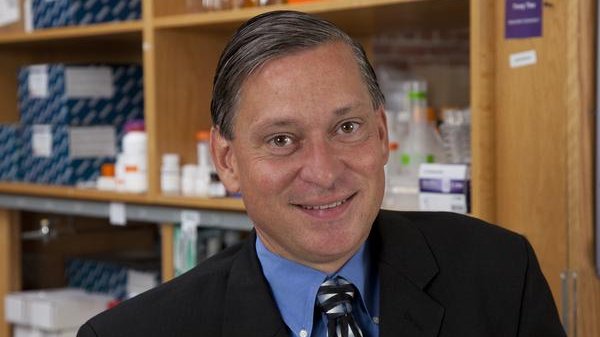One big challenge to developing drugs to treat the neurodegenerative disease amyotrophic lateral sclerosis, or ALS, is the method of measuring progression of the disease, and the effectiveness of new drugs. The current test is based on a questionnaire.
“It’s not very sensitive and not very quantitative. It’s kind of subjective,” said Steve Perrin, CEO of the Cambridge nonprofit biotech ALS Therapy Development Institute.
Recently, ALS-TDI teamed up with South San Francisco biotech Denali Therapeutics in a study of other ways of measuring the severity of the disease that could be used as goals, or endpoints, in clinical trials of new experimental drugs designed to treat ALS. The aim of the collaboration is to prove to the FDA that the use of certain wearable devices that measure a patient’s movements to within a one-hundredth of a second can be used in conjunction with the commonly used ALSFRS-R questionnaire to speed up trials and enable them to be smaller.
It was in 2014 that ALS-TDI launched a Precision Medicine Program thanks to money it received from the wildly successful Ice Bucket Challenge. The program has provided wearables, called accelerometers, to patients and tracks how their movements change as the disease changes. Perrin said that as of last week, the trial had enrolled about 270 patients, but that many more are needed to prove a correlation between accelerometer data and the disease with enough statistical significance to satisfy the FDA.
The collaboration with Denali, which launched last year with plans to develop drugs for ALS as well as Alzheimer’s and Parkinson’s disease, is expected to speed up that trial significantly. Perrin said he hopes to enroll another 300 patients by the end of the year, and to have enough data by this time next year to give initial results. He expects that many more patients beyond even that will be needed for the trial.
If successful, however, the use of accelerometers would provide a much more reliable way of testing drugs for the disease, and ultimately persuade more biotechs to pursue drug development programs in ALS.
“Translating potential treatments for ALS from the lab to clinical trials is a crucial step in solving the huge unmet patient need in ALS,” said Perrin in a statement. “The discovery and development of sensitive endpoints of disease progression may help accelerate all ALS clinical trials. This collaboration is a great example of how we are working with leading companies to do so, while at the same time identifying the most exciting treatments to put into clinical trials.”
Biogen (Nasdaq: BIIB), Voyager Therapeutics (Nasdaq: VYGR) and Yumanity Therapeutics are some of the better-known biotechs here in Cambridge eyeing potential treatments for ALS, though only Biogen has its drug in early-stage clinical trials. The neurodegenerative disease affects about 30,000 Americans, most of whom live an average of two to five years after diagnosis. There is only one FDA-approved treatment shown to extend survival by two to three months, but no cure.
Editor's note: This story was updated at 1:30 p.m. to correct the fact that Biogen has begun a Phase 1 trial of its drug for ALS.






